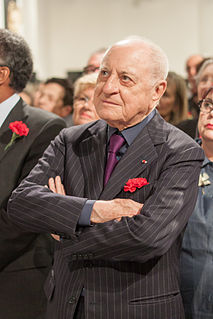A Quote by Alexander Chee
By the 1880s, English translations of both the French and the Russian editions were available, and Americans began to read 'War and Peace.'
Related Quotes
It's a common mistake for vacationing Americans to assume that everyone around them is French and therefore speaks no English whatsoever. [...] An experienced traveler could have told by looking at my shoes that I wasn't French. And even if I were French, it's not as if English is some mysterious tribal dialect spoken only by anthropologists and a small population of cannibals.
In the 19th century, the English were loathed. Every memoir that you read of that period, indicates the loathing that everybody felt for the English, the only difference between the English and Americans, in this respect, is the English rather liked being loathed and the Americans apparently dislike it intensely.
Of course my books are translated into many languages. I have here, in my home, translations on my shelf of my books into forty-five different languages. Almost none of them I can read. I can read only the English editions. But, I know that a translation of a work of literature is like playing a violin concerto on the piano. You can do this. You can do this very successfully on one strict condition: never try to force the piano to produce the sounds of the violin. This will be grotesque. So, different musical instruments provide for different music.
In fact, many of the quotes in my books are quotes which were translated from English and that I read already translated into Spanish. I'm not really concerned with what the original version in English was, because the important thing for me is that I received them already translated, and they've influenced my original worldview as translations, not as original quotations.
I'm not terribly well read. My wife forces books into my hands and insists I read them, which I'm grateful to her for. She made me read 'War and Peace.' The whole thing. It was amazing, but I had to hide it. You can't walk round reading 'War and Peace' - it's like you're in a comedy sketch and you think you're smart.
After all, in both languages we were dealing in large measure not with English and French, but with Scots and Irish, Bretons and Normans ... There could be no more eloquent illustration of the colonial mind-set than a bunch of Celts and Vikings in a distant northern territory insulting each other as les Anglais and the French as if they were the descendants of the people who had subjected and ruined them.
During a single week of July 1967, 164 Americans were killed and 2100 were wounded in city riots in the United States. We are truly fighting a two-front war and doing badly in both. Each war feeds on the other and, although the President assures us that we have the resources to win both wars, in fact we are not winning either.






































